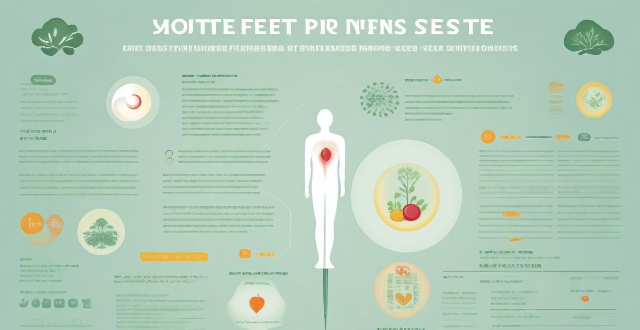Radiation, both natural and man-made, can have harmful effects on human health, including damage to living tissue, increased cancer risk, and genetic mutations. Types of radiation include ionizing (X-rays, gamma rays) and non-ionizing (UV light). Health effects range from acute radiation syndrome to cancer and cataracts. Preventing exposure involves limiting contact with ionizing radiation, using protective equipment, monitoring levels, and staying informed about safety guidelines.

Radiation and Its Impact on Human Health
Radiation, both natural and man-made, has the potential to affect human health in various ways. It can cause damage to living tissue, increase the risk of cancer, and have other harmful effects depending on the type and amount of radiation exposure.
Types of Radiation
1. Ionizing radiation: This type includes X-rays, gamma rays, and alpha and beta particles. They can remove tightly bound electrons from atoms, creating ions and leading to potential damage to cells, proteins, and DNA.
2. Non-ionizing radiation: This type includes ultraviolet light and visible light. While generally less harmful than ionizing radiation, it can still cause harm such as skin damage or eye injury if overexposed.
Health Effects of Radiation Exposure
- Acute Radiation Syndrome: High doses of radiation can lead to this syndrome, causing symptoms like nausea, vomiting, hair loss, and damage to the digestive tract.
- Cancer: Prolonged exposure to radiation increases the risk of developing cancer, especially leukemia and other forms of cancer affecting bone, lung, thyroid, and breast tissues.
- Genetic Effects: Radiation can cause mutations in genes that may be passed on to future generations.
- Tissue Damage: Radiation can directly damage tissues, leading to burns, scarring, and other injuries.
- Cataracts: Exposure to radiation, particularly in the form of UV rays, can cause cataracts in the eyes.
Preventing Radiation Exposure
To minimize the risk associated with radiation exposure, several preventive measures can be taken:
1. Limit exposure to ionizing radiation: Avoid unnecessary X-rays and ensure proper shielding during medical imaging procedures.
2. Use protective equipment: When working in environments where radiation is present, wear appropriate gear such as lead aprons and use shielding materials.
3. Monitor radiation levels: Use radiation detection devices to monitor levels in areas where radiation might be present, such as around power plants or during certain industrial processes.
4. Stay informed: Be aware of environmental radiation levels in your area due to natural sources like radon gas or man-made sources like nuclear facilities.
5. Eat a diet rich in antioxidants: Foods high in antioxidants may help protect against some forms of radiation damage by reducing oxidative stress.
6. Follow safety guidelines: Adhere to safety protocols when handling radioactive materials or equipment.
7. Stay up-to-date on research: As new information becomes available about radiation risks and prevention methods, stay informed and adjust your behavior accordingly.
8. Educate others: Share knowledge about radiation safety with family, friends, and colleagues to create a culture of awareness and prevention.
By understanding the types of radiation, their health effects, and taking proactive steps for protection, individuals can significantly reduce their risk of negative health outcomes related to radiation exposure.